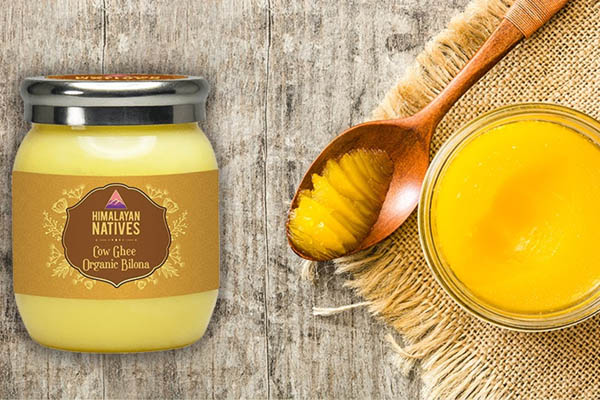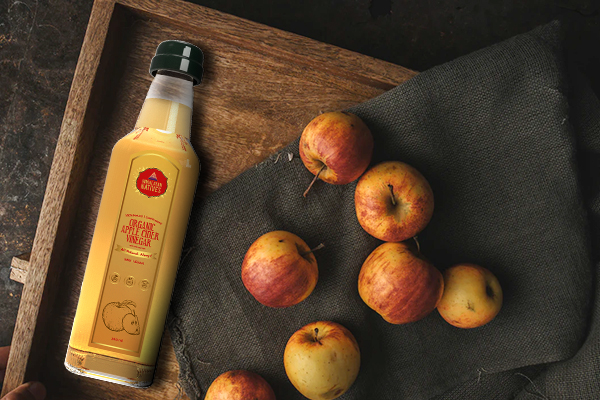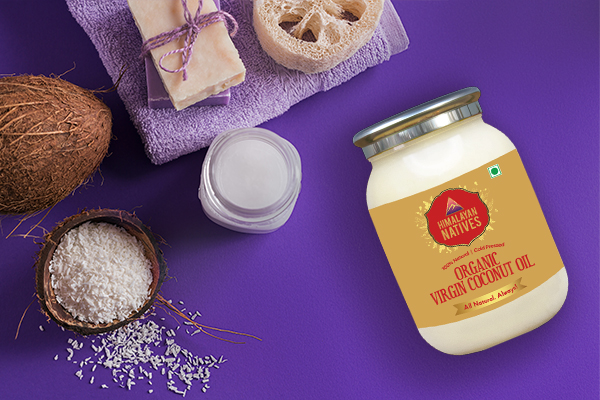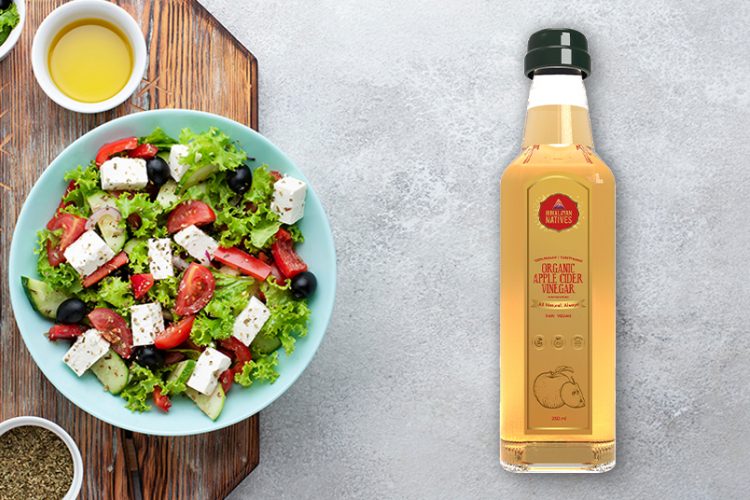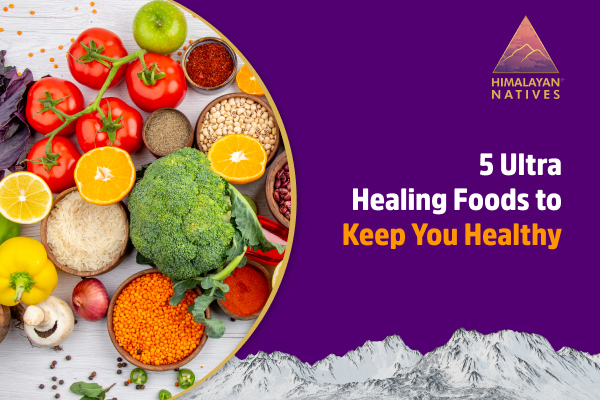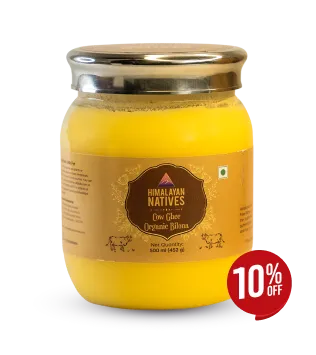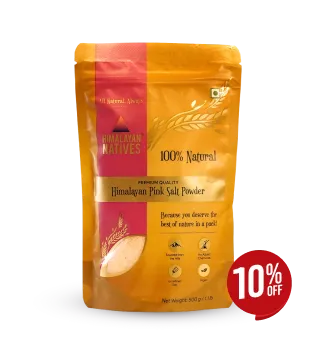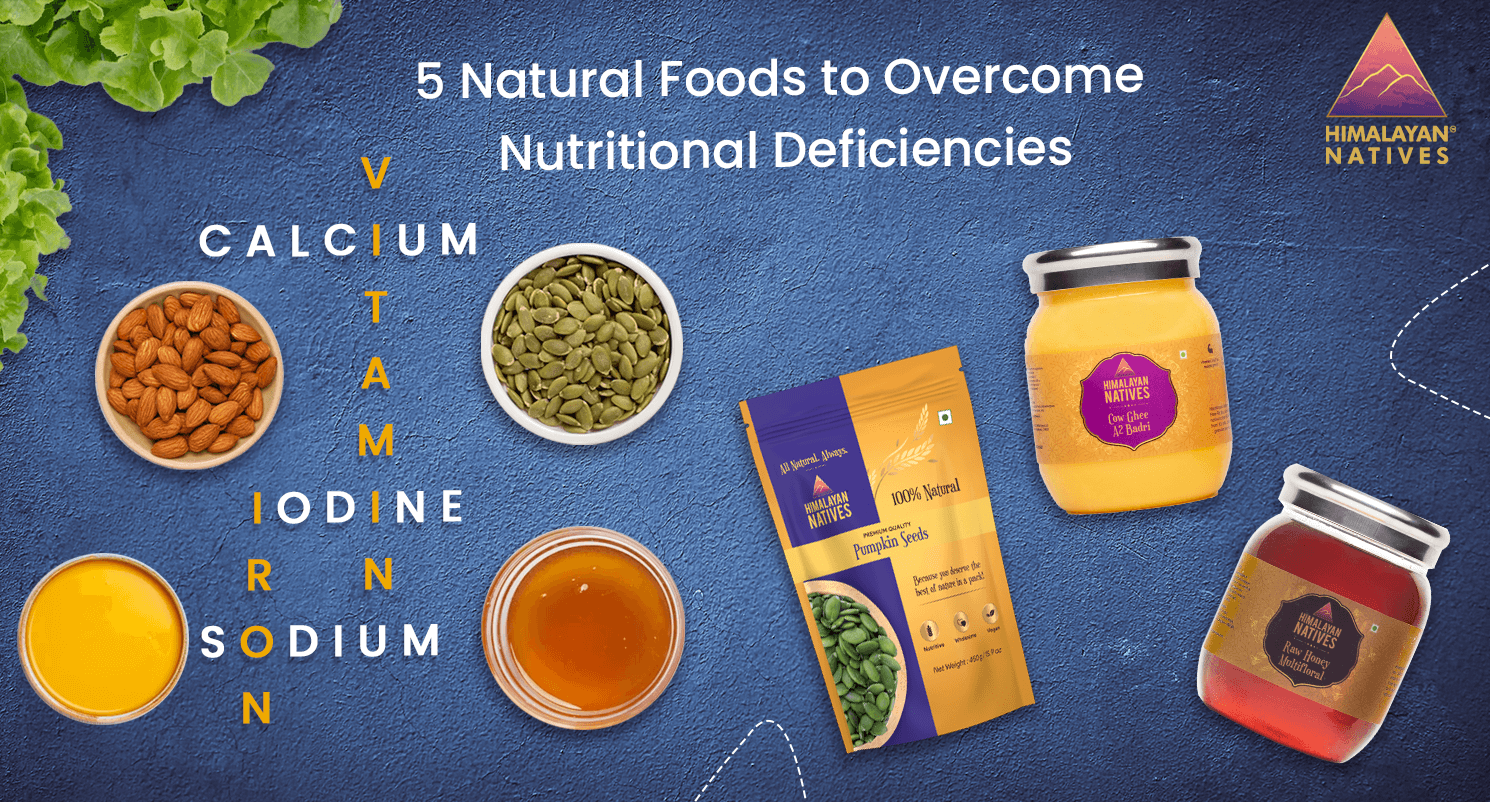
Are you tired of feeling sluggish and run-down more frequently?
Nutritional deficiencies might just be the reason for weakness, fatigue, bone pain and a major supporting factor for some chronic diseases.
Every single nutrient has a crucial role to play in our body, from physiological functioning to emotional well being. And just like fuel is the source of energy for machines, nutrition is for the human body.
But, how do we identify which nutritional deficiency our body is experiencing?
In this article, let’s dive into the world of nutrition and explore five incredible foods that can make a significant difference in your daily diet and healthy eating habits.
It was rightfully said by Sir Thomas Edison.
“The doctor of the future will no longer treat the human frame with drugs, but rather will cure and prevent disease with nutrition”
How to Identify if you are Nutrient Deficient?
A nutritional deficiency means insufficient intake or absorption of essential nutrients or a single nutrient, for example, Vitamin deficiencies, Iron deficiency etc, that are necessary for the body's optimal function and health.

Does this happen with all age groups or just some? And what age group has the most nutrient deficiencies?
Well, did you know that children, young women, older adults, vegetarians, and vegans seem to be at the highest risk of several deficiencies.
To spot if you have any nutrient deficiency, check if any of these are yes for you:
Feeling of tiredness, muscle ache or weakness?
Do you have pale skin, reduced appetite, numbness and tingling in extremities, confusion and poor memory?
Are you suffering from High Blood Pressure or Kidney Stone?
Shortness of breath, cold hands & feet?
Muscle cramps, dry skin, brittle nails?
And the best way to fight these above symptoms of nutritional deficiency is to follow a well balanced diet chart, including these Natural Food Products in your daily diet.
Most Common Nutritional Deficiencies:
In India, we have one of the most diverse populations, leading to Here are some of the most common nutritional deficiencies in India, their effects, and the recommended daily intake to overcome them:
1. Iron Deficiency:
Symptoms: Extreme fatigue, weakness, pale skin, chest pain, fast heartbeat or shortness of breath, headache, dizziness, cold hands and feet, inflammation or soreness of your tongue and brittle nails.
Daily Required Intake:
This varies by age and gender, but generally, adult men need around 8 mg, while women require 18 mg.
Foods to overcome it: Dry Fruits (Almonds, Cashews & Raisins), Pumpkin Seeds, Lentils, Pink & Black Salt.
2. Vitamin D Deficiency:
Symptoms: Not sleeping well, bone pain, depression or feelings of sadness, hair loss, muscle weakness, loss of appetite and lower immunity.
Daily Required Intake:
Around 600-900 IU or 1.5 mg is generally suggested.
Foods to overcome it: Desi Cow Ghee, Cow Milk, Cereals, Yoghurt & Tofu.
3. Vitamin B12 Deficiency:
Symptoms: Constipation, loss of appetite, weight loss, numbness and tingling in the hands and feet, difficulty maintaining balance, confusion, poor memory.
Daily Required Intake:
The daily requirement of vitamin B12 is around 2.4 micrograms. However, individual needs may vary based on factors like age and medical conditions.
Foods to overcome it: Desi Cow Ghee, Cow Milk, Cereals & Yoghurt.
4. Calcium Deficiency:
Symptoms: Weak and brittle bones, frequent fractures, dental problems, muscle cramps, numbness and tingling in the fingers, fatigue, difficulty swallowing, irregular heartbeat.
Daily Required Intake:
Typically around 1000-1300 mg. Adequate vitamin D intake is also important for calcium absorption.
Foods to overcome it: Desi Cow Ghee, Cow Milk, Almonds, Basil Seeds & Lentils.
5. Iodine Deficiency:
Symptoms: Swelling in the neck, fatigue, weight gain, dry skin, brittle nails, hair loss, intolerance to cold, irregular menstrual periods.
Daily Required Intake:
The daily recommended intake of iodine is around 150 micrograms for most adults.
Foods to overcome it: Desi Cow Ghee, Cow Milk, Yoghurt, Potatoes & Corn.
6. Vitamin A Deficiency:
Symptoms: Night blindness, dry and rough skin, frequent infections, poor wound healing, white spots on the eyes, hair loss, poor growth in children, compromised immune function.
Daily Required Intake:
Generally, it's around 700-900 micrograms of retinol activity equivalents (RAE).
Foods to overcome it: Cereals, Cow Milk, Pumpkin Seeds, Spinach & Tomatoes.
7. Protein Deficiency:
Symptoms: Muscle wasting, thin and brittle hair, slow wound healing, frequent infections, fatigue, weakness, edema (fluid retention), poor growth in children, weakened immune system.
Daily Required Intake:
As a general guideline, most adults need around 0.8 grams of protein per kilogram of body weight.
Foods to overcome it: Quinoa, Basil Seeds, Lentils & Almonds.
5 Natural Food Products & their Nutritional Role in our Body
When it comes to nourishing our bodies, nature has provided us with enough healthy alternatives to choose from.
Here are five natural foods that will surely help you fight nutritional deficiencies if consumed in a balanced diet.
1. Desi Cow Ghee:
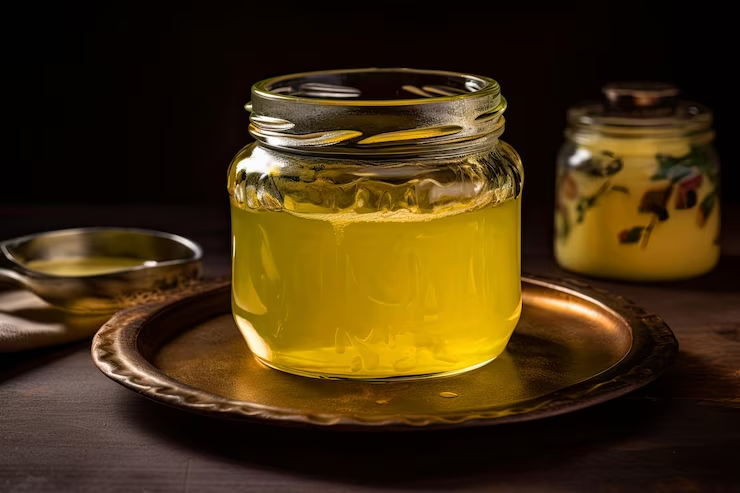
Perfect food for people especially with Vitamin A, B12, Omega 3 & 6 deficiency.
Nutritional Content
Vitamins A, B2, B12, B6, C, E, and K
Omega-3 and Omega-6 fatty acids
Healthy amino acids
Nutritional Role & Absorption:
Desi Cow Ghee is rich in healthy saturated fats and antioxidants. This provides a concentrated source of energy, aids in the absorption of fat-soluble vitamins (A, D, E, K), and supports brain health.
The medium-chain fatty acids are easily absorbed by the body, providing sustained energy and promoting satiety which eventually leads to weight loss.
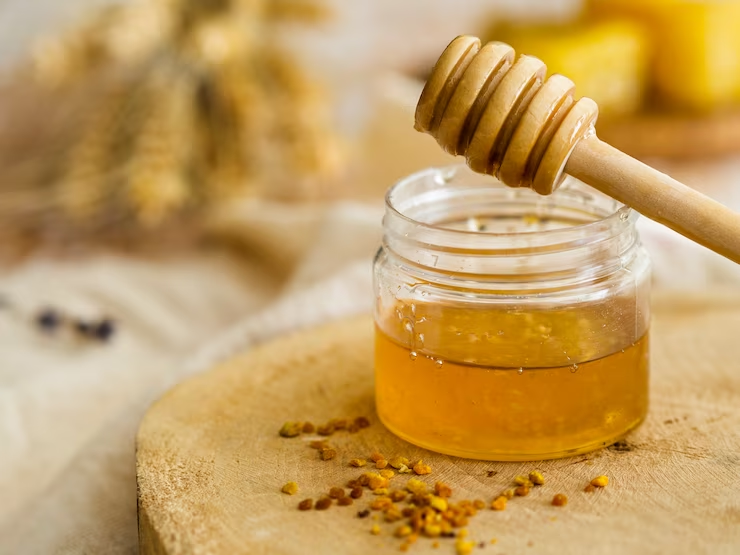
Ideal for individuals seeking natural sweetness and potential benefits of antioxidants & minerals.
Nutritional Content:
Natural sugars (fructose and glucose)
Enzymes and antioxidants
Calcium, Potassium, Sodium, Zinc & Vitamin C.
Nutritional Role & Health Benefits:
Raw multifloral honey offers a natural source of energy due to its simple sugars. It contains enzymes and antioxidants that can aid digestion and protect cells from oxidative stress.
Honey's antibacterial properties make it a potential remedy for sore throats and minor wounds. However, moderation is key due to its sugar content.
3. Dry Fruits & Nuts (Almonds, Cashews & Raisins):
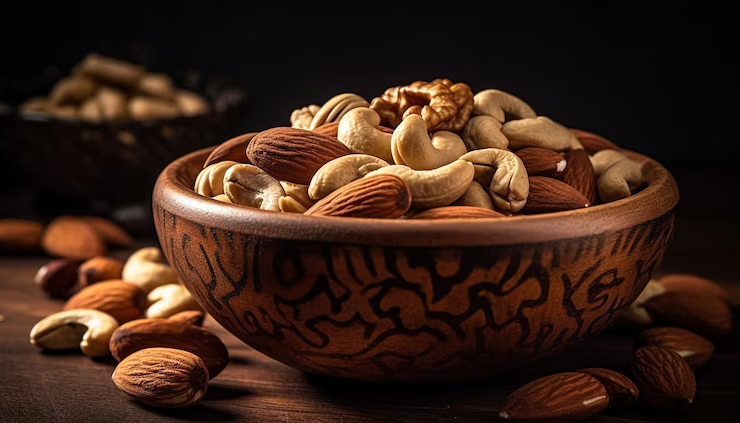
A nutritious snack for those facing deficiency of Vitamins K, B, E, Calcium, Iron, Zinc and Manganese.
Nutritional Content:
Healthy monounsaturated and polyunsaturated fats
Vitamin E, B Vitamins, and Minerals (magnesium, copper, zinc)
Dietary fibre and protein
Nutritional Role & Health Benefits:
Dry fruits & nuts provide heart-healthy fats that support cardiovascular health. Vitamin E acts as an antioxidant, protecting cells from damage. These nuts are rich in magnesium and other minerals that aid muscle and bone health.
Their combination of fibre and protein helps in promoting satiety, making them a great snack choice for weight management.
4. Pumpkin Seeds:
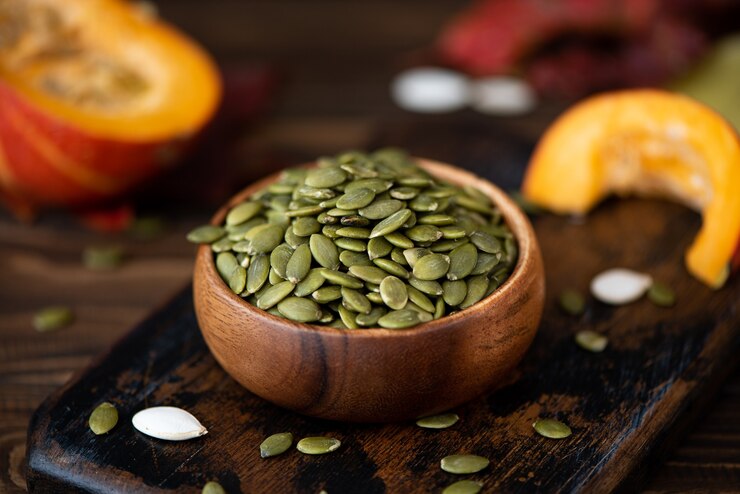
A natural source of nutrients for those with Protein, Omega 3 fatty acids. Vitamin E, Bs, Magnesium, Zinc and Iron.
Nutritional Content:
Protein and dietary fibre
Healthy fats (including Omega-3 & 6 Fatty Acids)
Vitamins (Vitamin E, B Vitamins) and minerals (Magnesium, Zinc, Iron)
Nutritional Role & Health Benefits:
Pumpkin seeds offer a balance of protein, fibre, and healthy fats, contributing to sustained energy and digestive health. They're rich in magnesium, which supports muscle and nerve function.
The presence of zinc can bolster the immune system, while the omega-3 fatty acids contribute to heart health and helps reduce inflammation.
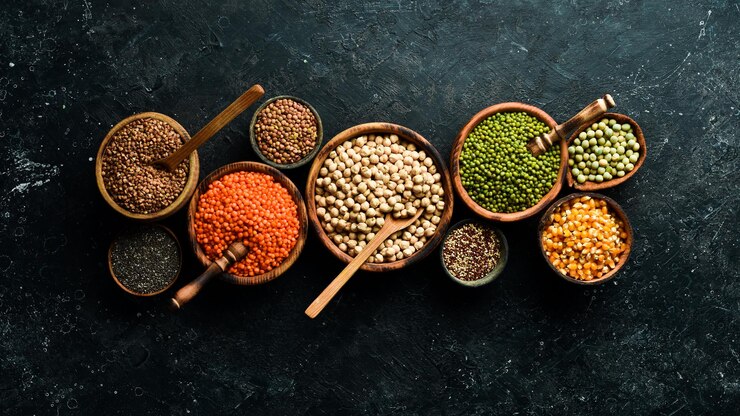
A perfect staple for individuals with Protein, Iron, Magnesium and Potassium deficiency.
Nutritional Content:
Protein and dietary fibre
Complex carbohydrates
Vitamins (Folate, B Vitamins) and minerals (Iron, Potassium, Magnesium)
Nutritional Role & Health Benefits:
Lentils and pulses are excellent plant-based sources of protein and dietary fibre, promoting feelings of fullness and aiding digestion. They are rich in folate, important for cell division and overall growth.
Iron content supports healthy blood circulation, while potassium helps regulate blood pressure. Including lentils or pulses in the diet can contribute to heart health and balanced nutrition.
But always be mindful to know what your body needs, consult your doctor if necessary and only then make significant dietary changes.
What is the Right Way to Incorporate These Foods into Your Diet?
The second thing you need to do once you know which nutrient your body is lacking, is to find the perfect natural and healthy food to overcome it. One brand that stands out and is trusted by over a million Indian households is Himalayan Natives.
Below are some ways to consume appropriate amounts of these natural food products the right way.
Cow Ghee:
1 tsp every morning empty stomach
Drizzle on Rotis, Khichdi or Recipes
As a cooking oil for high heat cooking
Raw Multifloral Honey:
1 tsp of raw honey into mildly warm water
Swap it with sugars and add natural sweetness to your desserts and daily recipes
Blend raw honey into your favourite smoothie recipes
Almonds & Cashews:
Have a handful of both daily, as it is
Add it to your desserts and recipes for extra flavour and crunch
Add them in your salads, smoothies and breakfast recipes
Pumpkin Seeds:
Have a handful daily, as it is
Sprinkle them on your salads, cereals, or blend them into your smoothies.
Make a healthy snack “Trail Mix”, a mixture of various seeds, dry fruits & nuts
Lentils:
Toss cooked lentils or pulses in your salads for texture & nutrition
Make healthy soups & stews
Make delicious meals including Indian Dals etc.
Your journey to better health begins with a single step, and learning more about nutrition is a great place to start. Hop on to our Facebook and Instagram pages where we daily share interesting healthy tips, facts & recipes.
Why Overcoming Nutritional Deficiencies is Important!
Nutritional deficiencies directly impact our energy levels and immunity making us prone to chronic diseases if ignored in the long run.
So whether you are tackling a busy work day or hitting the gym, you need to make sure to fuel up your body with the right amount of energy and nutrition.
Why wait? Start making these foods a part of your daily routine and experience the positive changes for yourself.
Remember, every small change you make today can lead to a healthier and happier tomorrow.
 HELPFUL0 people found it helpful
HELPFUL0 people found it helpful
Related Blogs
Subscribe to Our Blogs
and never miss on the latest update!







